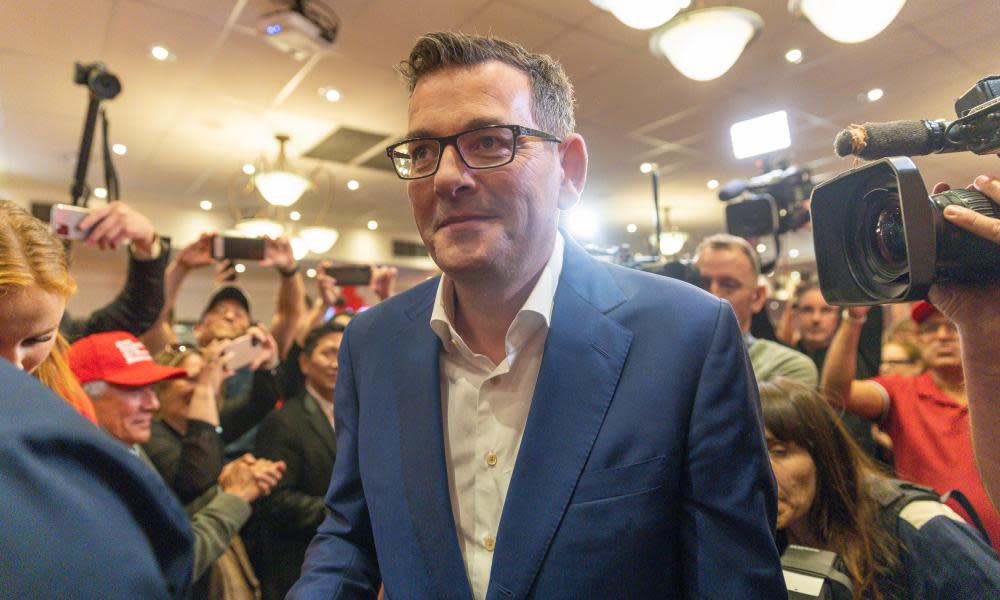Victorian Labor surpasses its 2018 ‘Danslide’ result after claiming seat of Bass

Victorian Labor has surpassed its emphatic 2018 “Danslide” election result, claiming victory in the seat of Bass, in Melbourne’s south-east.
Labor MP Jordan Crugnale claimed the seat on Friday night, after a redistribution before the poll made the seat notionally Liberal with a margin of 0.7%.
This brings Labor’s lower house seat tally to 56 – one more than the 55 it won at the 2018 election, which was considered a high benchmark for the party and unlikely to be replicated at this poll.
All published polling indicated a Labor majority was always the most likely outcome but those within the party’s ranks believed it would lose up to 10 seats. In the days before the election, the Liberals also had internal polling indicating it could win office.
In a Facebook post, Crugnale thanked her supporters and said she believed it was always going to be tight race in Bass.
“To be re-elected for another term is beyond amazing, humbling and am streaming with tears of gratitude,” Crugnale said on Friday night.
“I will apply that same determination, grit and fight, be that constant [loud] voice at our government table and build on the momentum we have already started and keep at it – we need and deserve a whole heap more.”
In the end, Labor lost the seat of Richmond to the Greens and Hawthorn to the Liberals, but won Bayswater, which under a redistribution had swapped hands, as well as Hastings and Glen Waverley.
The Liberals picked up the seat of Nepean and the Nationals won Mildura, Morwell and Shepparton, meaning the Coalition ended the 2022 election on 27 lower house seats – the same amount of seats it held in 2018. It will more than likely pick up the seat of Narracan, where the election will be held at a later date following the death of a candidate during the campaign.
The government lost about 200,000 voters between 2018 and 2022 – amounting to a statewide swing of 5.8% – but this was largely concentrated to seats in the north and west and buffered by large margins.
Dr Geoffrey Robinson, a senior politics lecturer at Deakin University, described the result as a “status quo” election.
“If you look at it on paper, Labor’s two-party preferred vote is still in the high 50s, there’s been a small swing away from them, which was expected, but it hasn’t translated to a loss of seats,” he said.
“The swing was either in rural areas, which they don’t hold, or some of their safe seats, and they really cleaned up in the marginals and cleaned up in the outer suburbs as well – Bass is a great example.”
Related: Moderate John Pesutto to ramp up Victorian Liberal leadership campaign after securing seat
Crugnale ran against Liberal candidate Aaron Brown, a fourth-generation local, and the son of former Bass MP, Alan Brown, who was the Victorian opposition leader from 1989 to 1991.
It was one of several seats in the growing south-east the Liberals expected to pick up at the election, including the newly created seat of Pakenham, which Labor’s candidate Emma Vulin won by 307 votes on Thursday.
Meanwhile, the upper house result should become clear by Tuesday, with several seats yet to be decided, including that of Reason party MP Fiona Patten, who has been losing ground to former Labor powerbroker Adem Somyurek as counting has progressed.
The early numbers suggest a bloc of leftwing candidates and parties could hold the balance of power, including four Greens MPs, at least one Legalise Cannabis MP and an Animal Justice party MP.

 Yahoo Movies
Yahoo Movies 
